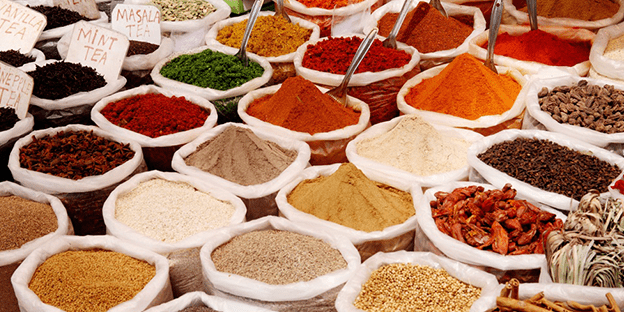- What is organic farming and why is it important?
Organic farming is a method of agriculture that involves the cultivation of crops and the raising of animals without the use of synthetic fertilizers, pesticides, genetically modified organisms (GMOs), or other chemicals. Instead, organic farmers rely on natural methods such as crop rotation, composting, and the use of natural predators to control pests and weeds.
Organic farming is important for several reasons:
- Health: Organic farming avoids the use of synthetic pesticides and fertilizers that can be harmful to human health, as well as to the environment.
- Sustainability: Organic farming promotes the use of renewable resources and supports biodiversity. It also reduces the carbon footprint of farming practices by reducing the use of fossil fuels.
- Soil health: Organic farming promotes soil health by using natural methods such as composting and crop rotation. This helps to maintain soil fertility and reduce erosion.
- Taste and nutrition: Many people believe that organic foods taste better and are more nutritious than conventionally grown foods.
Overall, organic farming is important because it provides a sustainable and healthy alternative to conventional farming practices. It helps to protect the environment, maintain soil health, and promote the well-being of farmers, consumers, and communities.
- What does certified organic mean and how is certification regulated?
Certified organic refers to agricultural products and food that are produced without the use of synthetic pesticides, fertilizers, genetically modified organisms (GMOs), or other harmful chemicals. In order to be certified organic, farmers and producers must follow strict guidelines and regulations set by a certifying agency.
Certification is regulated by government and independent organizations in different countries, and the process typically involves a thorough inspection of the farm or production facility, as well as an evaluation of the farming practices and management systems in place. The certification process may also involve testing of soil and water samples to ensure that they are free of contaminants.
In the United States, the USDA (United States Department of Agriculture) is responsible for regulating and enforcing organic standards. The USDA Organic certification requires that farms and processors undergo an inspection by a USDA-accredited certifying agent to ensure they are meeting the National Organic Program (NOP) regulations.
In other countries, different organizations may be responsible for regulating organic certification. For example, in the European Union, organic certification is regulated by the European Commission and requires that organic products carry the EU organic logo to indicate that they have met the EU organic standards.
Overall, certified organic products are subject to strict regulations and are produced using environmentally sustainable practices, making them a popular choice for consumers looking to support more sustainable and ethical food production.
- Can GMOs be used in organic products?
No, genetically modified organisms (GMOs) cannot be used in organic products according to the United States Department of Agriculture (USDA) National Organic Program (NOP) standards.
Organic products must meet specific standards, including the use of organic production methods and materials that do not involve genetic engineering. Organic farmers are also required to use non-GMO seeds and may not use genetically modified organisms in any aspect of production, including soil fertility, pest management, and animal feed.
However, it’s important to note that there is ongoing debate around the safety and ethics of GMOs in food and agriculture, and opinions vary widely among different stakeholders.
- What is the current state of certified organic agriculture in the U.S.?
As of my knowledge cutoff in 2021, the certified organic agriculture sector in the U.S. was growing and had a significant impact on the agricultural industry. The USDA’s National Organic Program (NOP) oversees the organic certification process, and according to their data, as of 2020, there were over 28,000 certified organic operations in the United States, including both crop and livestock operations.
The certified organic industry is also a significant economic force, with retail sales of organic food and beverages in the United States reaching $56.4 billion in 2020, up from $50.1 billion in 2019, according to the Organic Trade Association.
However, there have also been concerns about the integrity of the organic certification process and the potential for fraud. The USDA has taken steps to address these concerns, including increasing the frequency of inspections and implementing new regulations to prevent fraud and ensure the integrity of the organic label.
Overall, certified organic agriculture in the U.S. continues to grow and evolve, with ongoing efforts to improve the certification process and maintain consumer trust in the organic label.
- Are organic yields lower?
Organic yields can be lower than conventional yields in certain circumstances. However, it’s important to note that yield is just one factor to consider when evaluating the benefits and drawbacks of organic farming.
Organic farming relies on natural processes to maintain soil fertility, control pests and weeds, and promote plant growth, whereas conventional farming often relies on synthetic inputs such as fertilizers, pesticides, and herbicides. Organic farmers use practices such as crop rotation, cover cropping, and composting to build soil health and fertility, which can lead to more sustainable production over the long term.
While organic yields may be lower in some cases, research has shown that organic farming can be as productive as conventional farming in certain situations, particularly when it comes to diversified cropping systems and small-scale farming. Additionally, organic farming has been shown to have a number of environmental and health benefits, such as reducing soil erosion, increasing biodiversity, and reducing pesticide exposure for farmers and consumers.
Overall, the question of whether organic yields are lower than conventional yields is complex and depends on a variety of factors, including the specific crops and growing conditions, the management practices used, and the goals of the farmer.
Why is it important to invest in organic research?
- Investing in organic research is important for several reasons:
- Improving Sustainability: Organic research can help develop sustainable agricultural practices that can reduce the negative impact of farming on the environment. For example, organic farming techniques can help reduce soil erosion, conserve water resources, and minimize the use of harmful pesticides and synthetic fertilizers.
- Promoting Health: Organic research can help identify and develop healthier food options that are free from harmful additives and chemicals. Studies have shown that organic foods contain more nutrients and antioxidants than conventionally grown foods.
- Supporting Local Economies: Organic farming can provide economic benefits to local communities by creating jobs and supporting local businesses. Organic farms also tend to be smaller and more diverse, which can help promote greater biodiversity and reduce the risk of crop failure.
- Meeting Growing Demand: Consumer demand for organic food has been steadily increasing over the years. Investing in organic research can help farmers meet this growing demand and ensure a steady supply of organic produce for consumers.
- Ensuring Food Security: Organic research can help identify new and innovative ways to produce food that are resilient to climate change and other environmental challenges. This can help ensure food security and prevent food shortages in the future.
- How does organic farming help mitigate climate change?
Organic farming can help mitigate climate change in several ways:
- Reduced greenhouse gas emissions: Organic farming practices typically rely on natural methods of fertilization, pest control, and crop rotation, which reduces the need for synthetic fertilizers and pesticides that emit greenhouse gases during their production and use. Also, organic farming encourages the use of cover crops and reduced tillage, which can help sequester carbon in the soil and reduce emissions from fossil fuel use.
- Increased soil health: Organic farming methods prioritize soil health and biodiversity, which can increase the amount of carbon stored in the soil. Healthy soil can hold more water and nutrients, which can increase crop yields and reduce the need for irrigation, further reducing carbon emissions.
- Reduced energy consumption: Organic farming often involves more localized production and distribution, reducing transportation emissions. Additionally, organic farming practices typically require less energy-intensive machinery and equipment.
Overall, organic farming can contribute to mitigating climate change by reducing greenhouse gas emissions, increasing carbon sequestration in soil, and promoting sustainable practices that reduce energy consumption and protect ecosystems.
- How does organic farming increase resilience to climate change?
Organic farming can increase resilience to climate change in several ways:
- Soil Health: Organic farming focuses on building soil health by using practices such as crop rotation, composting, cover cropping, and reduced tillage. These practices improve soil structure, water retention, and nutrient cycling, making the soil more resilient to extreme weather events such as droughts and floods.
- Biodiversity: Organic farming promotes biodiversity by avoiding the use of synthetic pesticides and fertilizers, which can harm beneficial insects and soil microbes. By maintaining a diverse ecosystem, organic farms are more resilient to pests and diseases, and are better able to adapt to changes in climate.
- Water Conservation: Organic farming practices such as mulching and cover cropping can help to conserve water by reducing evaporation and runoff. This is particularly important in regions that are prone to droughts and water scarcity, as organic farms can maintain productivity even during dry periods.
- Carbon Sequestration: Organic farming can contribute to climate change mitigation by sequestering carbon in the soil. Practices such as cover cropping and reduced tillage can increase the amount of organic matter in the soil, which helps to store carbon and reduce greenhouse gas emissions.
Overall, organic farming can increase resilience to climate change by improving soil health, promoting biodiversity, conserving water, and contributing to climate change mitigation. These benefits can help farmers to maintain productivity and adapt to changing climate conditions.




